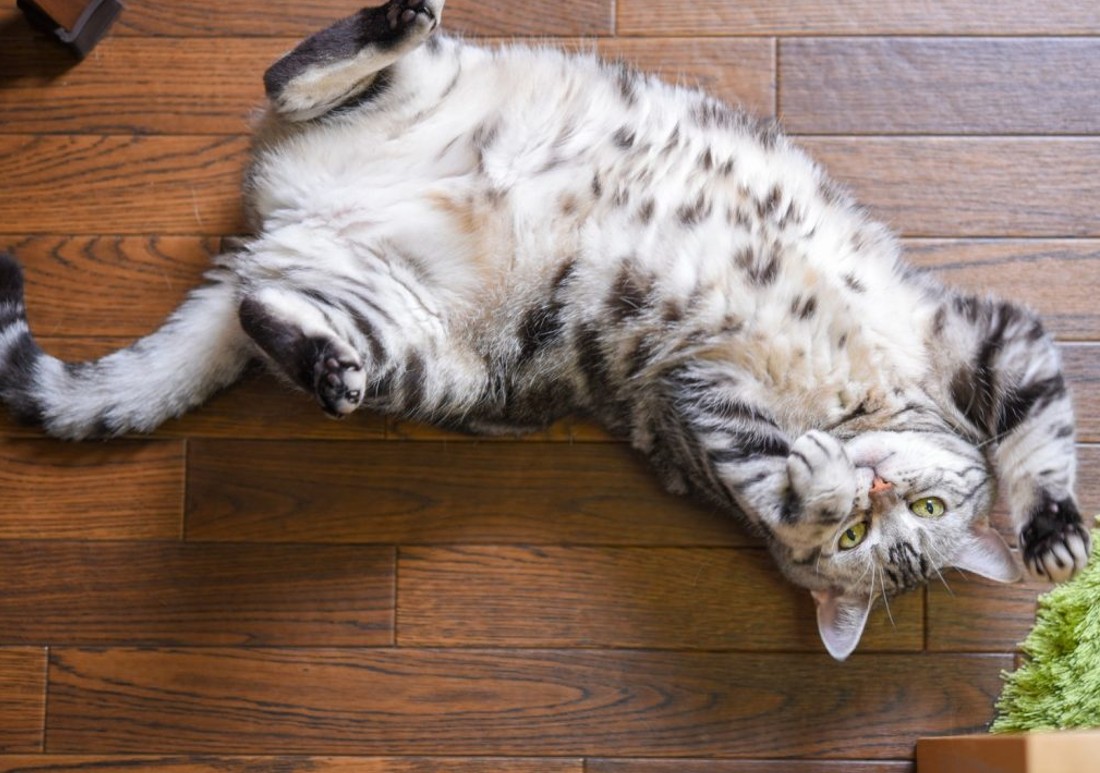Understanding Cat Stomach Gurgling: Why It Happens and When to See a Vet

As a cat owner, you’ve likely encountered the peculiar phenomenon of your feline companion’s stomach emitting unfamiliar noises. These gurgling and rumbling sounds can raise concerns, leaving you uncertain about their origins and whether a veterinary consultation is necessary.
This blog aims to shed light on cat stomach gurgling, providing insights into why it occurs and guiding you on when it becomes imperative to seek professional veterinary attention. Understanding the causes and potential consequences of these noises can help you ensure the well-being of your beloved cat. Read on to get peace of mind when those curious sounds arise.
Why Do Cats’ Stomachs Gurgle?
Stomach gurgling in cats can stem from a variety of factors, and most often, it’s a natural and harmless occurrence. Common causes include hunger, with cats mimicking humans by signaling mealtime through stomach noises. Gas and the regular digestive process can lead to gurgling sounds as food and gas move through the intestines.
Fast eating may cause air ingestion, resulting in stomach gurgling, and managing this can involve smaller, more frequent meals or puzzle feeders. Dietary changes, such as switching food or introducing new treats, can occasionally lead to stomach upset and gurgling as the digestive system adjusts. Additionally, cats’ grooming habits can lead to hair ingestion and potential stomach irritation.
When Should It Be a Concern?
Although stomach gurgling in cats is typically harmless, there are instances where it may indicate a more serious issue. If your cat’s stomach gurgles frequently or persistently, it could be a sign of an underlying gastrointestinal problem that necessitates attention. Watch out for accompanying symptoms like vomiting, diarrhea, lethargy, loss of appetite, or abdominal pain.
If you notice something wrong, it’s crucial to seek veterinary advice. In cases where your cat has ingested foreign objects like strings or small toys, it’s best to seek immediate veterinary care as well. Chronic gastrointestinal discomfort due to food allergies or sensitivities may result in persistent gurgling. Additionally, cats with underlying medical conditions such as inflammatory bowel disease (IBD) or pancreatitis can experience stomach gurgling as a symptom.
When to See a Vet
If you notice any of the issues above, a veterinarian will conduct a comprehensive examination and possibly recommend blood tests, fecal exams, or imaging to pinpoint any underlying issues. Treatment options will depend on the specific diagnosis and may entail dietary adjustments, probiotics for cats, prescription medications, or, in severe cases, surgical intervention. Early veterinary checkups can help ensure the well-being of your cat when any of these concerning symptoms manifest.
Preventing Stomach gurgling
You can help maintain your cat’s digestive health by following a few practical steps. First, ensure you provide your cat with a consistent and balanced diet. Avoid abrupt dietary changes that can trigger gastrointestinal issues. Keep an eye on your cat’s eating habits. Address rapid eating by offering smaller, timed meals or using puzzle feeders.
Regular grooming can also help reduce the ingestion of hair and the formation of hairballs. If you suspect food allergies or sensitivities might be causing digestive disturbances, consult with your veterinarian to explore dietary solutions or alternatives. By implementing these practices, you can promote better digestive health and reduce the occurrence of stomach gurgling in your feline companion.
Final Note!
Though it can sometimes be troubling for pet parents, stomach gurgling in cats is often a benign and natural occurrence. However, it’s crucial to pay attention to the context and accompanying symptoms. When in doubt or when other concerning signs are present, don’t hesitate to consult your veterinarian. Prompt veterinary care can help ensure your cat’s well-being and address any underlying health issues, allowing your feline companion to enjoy a healthy and comfortable life.
Your Pet’s Best Interest, Always
At Pet Institute, we take pet care seriously. We're dedicated to transparency, impartiality, and the well-being of your pets in every article, review, and recommendation we provide. Our unwavering commitment to these principles ensures that you, our valued reader, always receive reliable and unbiased information. Let us be your trusted guide in the world of pet care and companionship.